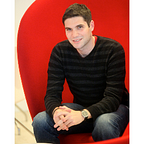Who’s crazy enough to join us on a year-long journey around the world?
My buddy, Alex, sent me a note back on April 21, 2016. It seems so long ago. He had one simple question: “A good friend of mine asked for an intro to you. He runs http://www.remoteyear.com. Can I make the intro?” I took one look at the site and said, “Yes!”
It’s not every day you meet a pair of founders who inspire total confidence with an idea that is poised to change the world with a set of metrics that put many already successful companies to shame. But that was where my Remote Year journey began.
I virtually met Greg Caplan, the CEO of Remote Year, on May 12, 2016. We had a phone call while he was traveling somewhere in Europe. Perhaps he was in Croatia or Prague or Lisbon. I honestly can’t remember but I do remember him describing how he viewed the world and how he came upon this phenomenal, albeit a bit nutty, concept. Greg said that he threw a question out to the internet:
Who’s crazy enough to join us on a year-long journey around the world?
It turns out, there are a shitload of people crazy enough to join “us” on a year-long journey around the world. He and Sam set off on their own journey. Greg described a way of life that led to more global citizens who ignored borders, time zones and continent-hopped all while continuing to work. Some of these people even held jobs at Fortune 1000 companies! More on that soon. He described a group of people traveling together, learning together, growing professionally and personally and, ultimately, creating a new type of bond — a Remote Year bond. I was hooked.
Fast forward a number of months. I can say that what Greg, Sam Pessin and the team at Remote Year have accomplished so far is astounding. They’re only about 1.5 years old and they’ve hosted over 500 traveling professionals — Remotes as they call them. Today, they have announced their $12M Series A led by Dan Nova and Craig Driscoll from Highland Capital with participation from my firm, Flybridge Capital. I couldn’t be more excited to be on this journey with Dan, Craig, Greg, Sam and the rest of the team!
Remote Year is the first deal I’ve led since joining Flybridge and it’s the continuation of an investment thesis that my partners and I kicked off in Fund IV.
The Urban Millennial
My wife and I fall into this group. Born between 1980 and 2000, the Millennial recently surpassed the Baby Boomer generation. What most fascinating is that they want entirely different things from their lives than their older friends and relatives.
The Millennial generation works, lives, learns and communicates differently than anyone before them.
We’re not the only people that notice this. In recent years we’ve seen the rise of Slack, WeWork, Airbnb, Uber, Upwork, Handy and so many more. These companies have realized that the Millennial generation doesn’t just want different, they need different. They need to “do what they love” as WeWork says. They need to “experience places like they live there” as Airbnb says. They need to “find rewarding projects” as Upwork says.
The challenge is that we’re early. Not only do we have massive gaps in platforms and products to allow people to work, to live, to learn and to communicate the way they want but we also have laws and regulations that work against the way that the Millennial generation wants to grow. The gig-economy and the shift in ownership has led to employees being indicted and tax codes being upended.
The opportunity is also that we’re early. Workplaces have been disrupted by WeWork. Accounting is being disrupted by inDinero. Outsourcing has been fundamentally changed by Upwork. But we’re just at the beginning. There’s still an incredibly large amount of opportunity. When we think about how education happens, legal work is completed, IT is managed and music is created it’s hard to find the next massive shift — one that works for the Millennial generation.
The questions I have are not whether or not this shift is going to be big, it’s how big and, more importantly, what fundamental pieces need to be built and adopted for it to affect 92M millennials as they all enter the workforce by 2020.
When we first saw Remote Year it stood out as one of those companies that could change the fabric of how Millennials advance in this world. As people begin to own less items they have the opportunity to own their own experiences. This is at the core of what Remote Year is building. The freedom to work, live, learn and communicate differently – better.
If you’d like to talk about this thesis or Remote Year, let me know. I can always be reached over at @srcasm or via email at j@flybridge.com.
